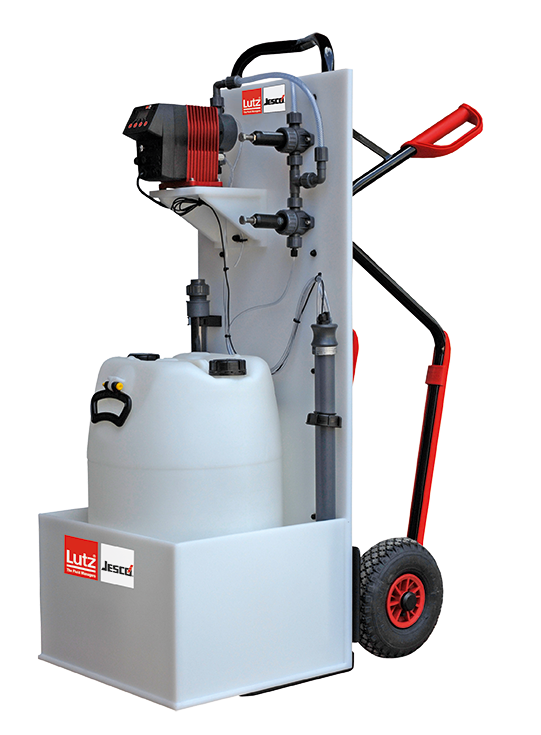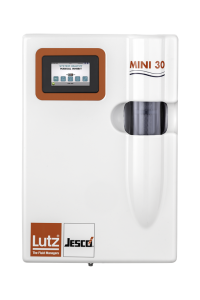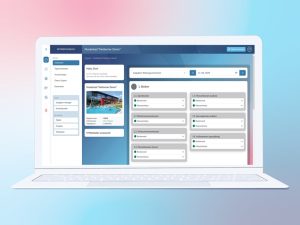Lutz-Jesco Advises on Legionella Risk on Holiday and What Can Be Done to Prevent It

The SAFETYCHLORMIX mobile emergency chlorination system ensures safety. (Image source: Lutz-Jesco GmbH)
A total of 10,412 cases of legionnaires’ disease were reported to the Robert Koch Institute (RKI) between 2015 and 2022. Of these, 1,927 were associated with travel. Smokers and people with a weakened immune system are particularly vulnerable to this condition. Underlying conditions such as diabetes also increase the risk of serious disease progression in people affected by legionnaires’ disease. Figures show that you are not particularly likely to bring legionnaires’ disease home with you as a souvenir of your holiday. However, holidaymakers should still exercise caution and follow certain safety measures. For example, before using the taps and shower in your holiday accommodation for the first time, it’s sensible to let the water run for a little while – preferably at a temperature of above 60°C, since such temperatures deactivate the bacteria. This is because your room might not have been occupied for quite some time if your hotel has not been at full capacity. If that’s the case, the only guests may have been bacteria, which can multiply in the unused pipes and lie in wait for human roommates. For the same reason, you should flush out the pipes when you return to your own four walls.
Take care in the jacuzzi
To protect yourself from being infected with legionnaires’ disease, you should critically assess the hygiene conditions in swimming pools, since they are not always as rigorous as they are back home. “In particular, Legionella feels completely at home in insufficiently cleaned jacuzzis and showers with poor ventilation. When water is sprayed about, contaminated aerosols can quickly reach the lungs,” says Thomas Beutel, an expert in swimming pool technology and the design of technical dosing systems at Lutz-Jesco GmbH. An outbreak in Bovenkarspel in the Netherlands in 1999 demonstrated how serious the consequences of this can be. Visitors on their way to a flower show had to pass by a sales exhibition for household goods. They were infected by Legionella aerosols from two jacuzzis, resulting in 233 infections and 22 deaths.
Every 1,000 swimmers add 50 litres of urine to bathing water
Swimming pools can also be dangerous, especially if features such as fountains and waterfalls spread aerosols and if the concentration of disinfectant in the water is insufficient for the level of contaminants. “On average, every 1,000 swimmers add 50 litres of urine, 300 litres of sweat, 4 kilos of organic matter and around 100 billion germs to the water. Although these contaminants are diluted by more than 3.6 million litres of water, they still need to be removed by an adequate water treatment system,” says Beutel. In such cases, disinfectant dosing systems from Lutz-Jesco, with their precise measurement and control technology, can be a cost-effective way of ensuring safe water. These systems are used in an increasing number of swimming pools throughout the world. “Our modern solutions have sensors which continuously measure the concentration of disinfectant in the pool,” explains Beutel. “This data allows our dosing systems to adapt quickly so that they always dose the perfect amount of disinfectant into the water to reliably exclude any risk of a Legionella infection.”
Lutz-Jesco’s goal: barrier-free water disinfection for extra safe holidaysSwimming pools aren’t the only possible sources of contamination while you’re on holiday. Air-conditioning units, cooling towers and public fountains can also be hotbeds of Legionella. “We're familiar with the various scenarios and offer a wide range of water disinfection technologies, including chlorine dioxide systems, chlorine electrolysis systems and CHC dosing station,” says Beutel. For example, SAFETYCHLORMIX is a mobile emergency chlorination system which can be transported on a sack cart and used to generate calcium hypochlorite for water disinfection quickly and flexibly at its destination. The MINICHLORGEN, which is used in mobile waterworks in Ukraine, among other places, enables the production of the disinfectant sodium hypochlorite from commercially available salt tablets. “Our goal is to remove barriers against water disinfection in order to protect people as effectively as possible across the board.”
Source: Lutz-Jesco GmbH







